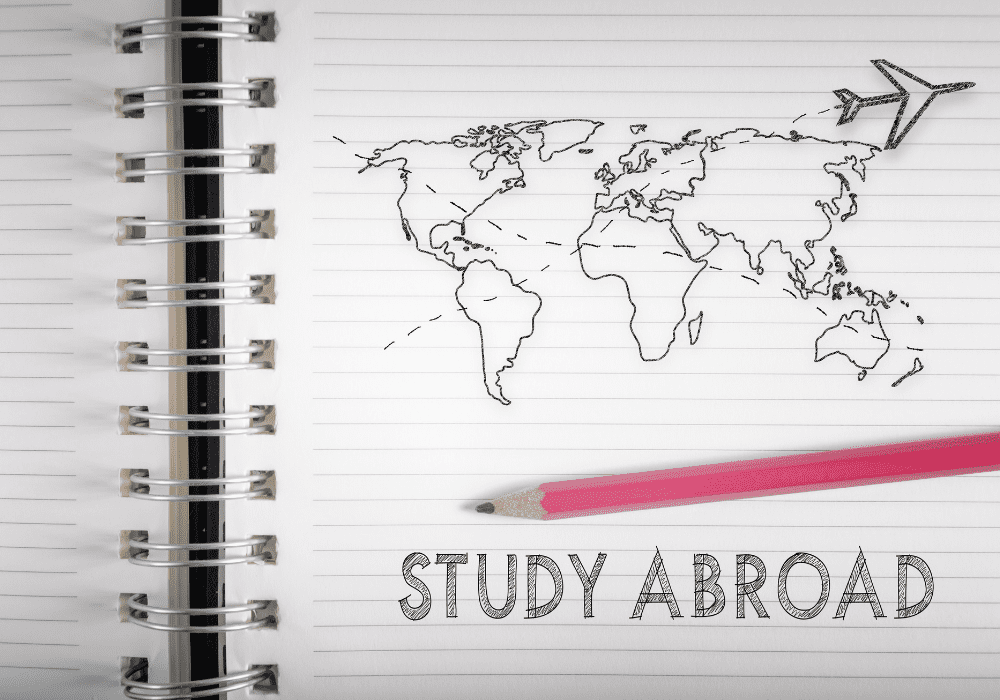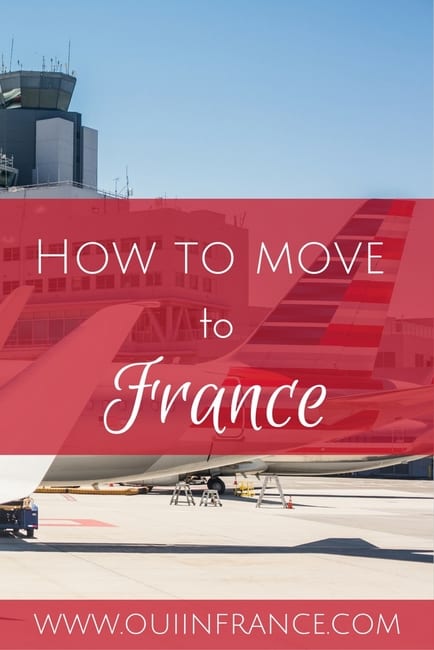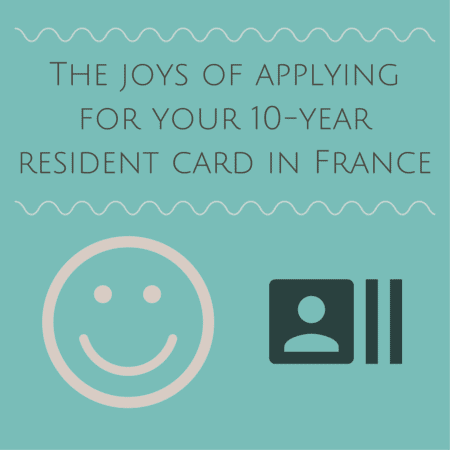As we settle into the new year and look forward to the warmer months this spring, our thoughts naturally turn to what we want to achieve in the months ahead. For many of us, this is the moment to dust off our dreams of moving to France that were pushed aside during the worst of the pandemic and look at them with fresh eyes.
First, do US citizens need a visa for France? What about France visa insurance? Do you know how to get a visa for France? Well, all good plans start with doing your research. Let’s have a look at the most popular types of French visas, how to get a visa for France and the France visa requirements so you can plan your big move with confidence.
Table of Contents
How to get a visa for France
The best way to determine whether you need a visa for France and what type is by answering these questions:
— What’s the purpose of your visit?
— How long are you planning to stay?
— Do you also hold a European passport?
One of the first things most of us realize is that we’ll need a visa if we want to move to France. Anyone from outside the EU needs to apply for one, but it’s not as much of a headache as it might seem. Deep breath…
There are a bunch of different types of French visas available, but keep in mind that in most cases, an application will be successful if you meet the criteria and have the correct documentation. The particular visa you apply for depends on the length and reason for your stay.
If you are lucky enough to have dual citizenship with one of the European member countries, you do not need a visa to come to France. However, if you only hold a US passport and you are planning to visit France for more than 90 days or settle long term, you will need to go through the visa process.
You can start your French visa application through the France visa website using a simple simulation. It will allow you determine if you meet the eligibility requirements, what visa would suit you the best and what type of documents you will need to provide, including private health insurance.
If submitted in the United States, the application is handled by the VFS Global Visa Center, the official partner of the French Consulate. You may be required to visit the nearest French Consulate for your interview.
Keep in mind that depending on where you live, the nearest consulate for your France visa appointment might be out of state. Most visa applications are not free of charge and that will depend on the type of French visa you’re applying for.
So let’s get into the most common visa types for France and info on getting a French visa.
Short-stay visas for France
Are you looking to come to France for tourism, a business trip or to visit family for no longer than 90 days? You’re in luck because this is the simplest category and what people refer to as a tourist visa for France.
If you are only intending to stay in France for a maximum of 90 days over a 180-day period, Americans do not need a visa for tourism. This falls under the visa waiver program and the stamp on your passport at the airport is all you’ll need for entry into France.
One thing to note is that the French authorities are much more rigorous about applying this rule in the post-Brexit world. It’s good if you are simply coming on vacation and want an extended visit, but the downside is that you do not have the right to work, and if you’re on the fence about staying longer, 90 days passes quickly.
Certain nationalities will require a visa for France or to transit through France, so use this visa wizard to check if you need one.
Long-stay visas for France
For stays longer than 90 days, you’re required to apply for a long-stay visa for France in advance, called a visa de long séjour. No matter the length of your stay, the visa will be granted for a 3-month to 1-year period.
There are temporary long-stay visas for France (VLS-T) that are for up to a year and non-renewable. This visa will act as your residency permit and needs to be validated within the first few months after you arrive in France. There are also regular long-stay visas (VLS-TS) which will be converted into a residency card if you plan to stay in France for a longer amount of time.
The long-stay visa category can be broken down into several subcategories:
Visitor visa
This 3-6 or 6-12 month visa is the most popular option for those looking to retire in France or for extended tourism or personal reasons. Depending on which length of visa you choose, you will need to provide the French Consulate with various documents including proof of accommodation and your ability to support yourself financially while in France, since you won’t have the right to work with this visa.
For the shorter visa, the VLS-T (which is a visa de long séjour temporaire), British expats can use their GHIC (formerly EHIC) card. For the others and for the longer one, the VLS-TS, (which is a visa long séjour valant titre de séjour that is used as a residence permit) they require proof of medical insurance so it’s important to have this French visa insurance component squared away.
Getting a compliant policy can be quite stressful, but here’s how to make it easy for yourself to get France visa insurance. Let me recommend the services of Fab French Insurance which are both competitive and personalized. Fabien and his team are top notch and can get you squared away and answer any questions you have about France visa insurance and the long-stay visa requirements…. in perfect English to boot.
Before wrapping up this section on the visitor visa, something to note is that the VLS-TS visa is initially valid for up to one year, but it is possible to renew it without having to leave France and you can apply for residency after that first year. However, the shorter VLS-T visa cannot be prolonged from inside France and you will definitely have to leave when it expires.
Student Visa
If you’re looking to pursue higher education in France, this is the category for you. It’s a straightforward process and the way many of us first come to France. Enroll at the school of your choice and be sure to take any required entrance exams.
This category also applies to au pairs looking to live with a family, as they require this long-stay visa as well. Another instance where you’d apply for a student visa is if you want your minor child to go to school in France.
Salaried Employment Visa
If you’re looking for info on how to get a work visa for France, this is the category for you. This is a renewable one-year visa for people who are employed by a French company. Individual situations may vary, but in almost every case your employer will need to obtain authorization to hire you.
There are exceptions for contracts that are shorter than 90 days in specific areas such as sports, culture, cinema, teaching and modeling.
In addition to the long-stay tourist visa documents mentioned above, you will also need to provide your work contract and your work permit. However, if you are posted to France to provide a service such as an audit or assessment in the field of IT, management, finance, insurance, architecture and engineering, or as a salaried guest teacher, you don’t need a work permit.
If you are transferred internally within your company to carry out a senior management position, you are entitled to a 3-year version of the visa which also allows your spouse to work by applying for the same visa as you.
International Talent & Economic Attractiveness Visa
This is not the easiest visa to obtain but has the advantage of being the most convenient, as it is valid for up to four years and allows your spouse and family to accompany you, as well as giving them the right to work. Let’s get into the France visa requirements that make this one the right choice.
There are five main categories under which you can apply for this visa:
1. You are a qualified or highly qualified salaried “employee on a mission,” which means you are accomplishing a specific task in a French company which is part of the international group of companies that employs you.
2. You are a self-employed person or engage in a liberal profession. However, in this case you may be required to invest 30,000 € in an existing or new French company if you apply for a talent passport while you are in the process of buying or creating your own company.
3. You are able to prove your national or international reputation. This can be in any area, so if you are Elton John, it would be music, but fortunately you do not need to be a worldwide star to qualify.
4. You are a performer or have created a literary or artistic work.
5. You wish to invest at least 300,000€ in a business project in France which will create or safeguard French jobs.
Business Creation Visa
This visa is perfect if you want to create or participate in a commercial, industrial, artisanal or agricultural activity or work in a liberal profession in France. Take note that you will need to provide the French administration with a business plan to show the potential of the new company and prove that you have sufficient financial resources to sustain it.
You will also have to follow the correct procedure to set up the company or register any changes within the French administration.
The potential downside of the Business Creation Visa is that a new procedure has recently been introduced which involves both the French Consulate and the Ministry of Labor, which may mean that the visa application processing time is longer.
Family visas
-Spouse visa
There are a few categories here, but let me start with the one that brought me to France after marrying Tom. As a spouse of a French citizen, I applied for a long-stay visa while I was still in the US.
Proof of marriage (and translations) are required along with other documents including your birth certificate. The VLS-TS then gets converted to a residency card under the “vie privée et familiale” status and is renewable.
-Family of a Foreign National Residing in France Visa
If you (non-French) are already a resident in France and want your non-French spouse and/or children to join you, this is the visa you need. The application is started in France by you on their behalf. You must be able to prove that you have sufficient and regular resources in order to support your family, as well as provide proof of housing of adequate size to accommodate them.
If you are applying for a visa for yourself and want to move to France with your children, you can apply for them at the same time. You will need to provide official family records and proof of schooling.
Business Travel Visa
You will need to obtain a temporary work permit unless you are traveling for a sporting, cultural or scientific event, a seminar or trade show, the production and broadcast of cinematographic and audio-visual works, modeling, IT/ asset management, insurance, finance, design, engineering audit or expertise missions.
To qualify for a Business Travel Visa, you will need to provide proof of the link between your professional activity and the purpose of your trip. The downside is that if you are intending to stay in France for more than 90 days, you will need to apply for both a long-stay visa and a work permit.
French visa FAQs
Is there a difference between a Schengen visa and a French visa?
As France is part of the Schengen area, your visa is automatically a Schengen visa as well. But please be cautious as it does not mean that once you have been granted the French visa that you can automatically settle in other European countries.
For example, should you wish to move to Spain, you would need to have the right type of visa or residency permit from Spain to be able to do that.
On the other hand, any Schengen visa does allow you to travel around in Europe up to 90 days within a 180-day period. You have the freedom to do that because the Schengen area is considered one entity.
When you travel from France to another European country, your passport won’t be stamped but you must make sure you always have your passport with you, as you can be asked to prove your identity, especially in airports.
What does “residency permit” mean?
The French residency card (Carte de séjour or titre de séjour) can be requested in France at your local préfecture two months before your long-stay visitor visa expires. The residency card allows you to live in France for the duration of the card (which can vary from 1 year up to 10 years).
To be eligible for a residency permit, you must hold a current long-stay visitor visa that has been validated within 2 months of your arrival by the Office of Integration and Immigration in France (OFII).
Residency cards do not automatically allow you to work, so you have to make sure you have the right status if you plan on working. However, it is possible to change your status during the application process in most cases. If you have a European or French spouse/close family member such as parents or children, the process is easier.
What is this 90 per 180 days rule?
The rule refers to the number of days that you are allowed to spend in the Schengen area without a visa. As an American tourist, this basically means 90 days out of any 180. The count starts when you arrive in France. After 90 days, you will have to leave France (and Europe) and you can only return after 180 days have passed.
What can I bring with me to France?
If you are in doubt as to what you are allowed to bring with you as well as other formalities, please have a look at the French Embassy’s site for an up to date list. Please be advised that guns are NOT accepted into France unless you are coming for a shooting competition.
Also, I’ve written an entire post on things NOT to pack when you move to France, so check it out.
***
Finally, I know that if you’re just starting to look into how to move, the whole French visa process can be a lot to wrap your head around. Take it one bite at a time and if you need help with the administrative side of getting a French visa, check out the services of French Connections HCB. They can help with your visa application and get your plans off the ground. Then be sure to get in touch with Fab French Insurance for all your France visa insurance needs.
Hope this France visa information post was helpful!
Disclosure: This is a sponsored collaboration between Oui In France and Fab French Insurance. Thanks for supporting the companies that support Oui In France.
PIN my France visa insurance post:











A comprehensive article and an interesting read even though I already live in France. I had not heard of Fab Insurance. Will certainly check them out as I am not happy with my insurers. Thanks Diane. Bon weekend.
Thank you, Kameela! Yes Fabien is really great and can help with a bunch of different insurance types, like car insurance and all kinds of things even for us folks who have lived in France for a while. Super knowledgeable about it all. Have a wonderful weekend as well!
A very informative article and very comprehensive. But it’s good that The French travel restrictions have been lifted now but what about the covid passport? that’s another headache for the people who don’t want to get vaccinated. A two-tier society https://wtxnews.com/travel/.
Really good ineed. Travel restrictions come and go and add up to the general confusion. Hopefully this will be over soon… hopefully 😉
Hi Diane,
This is such a great post! Very complete! Well done!
Just some extra information in case this can help others.
OFII is not in charge of the visa validation anymore. The process is now done online since 2019. This process should still be done within the first 3 months after arrival in France.
https://administration-etrangers-en-france.interieur.gouv.fr/particuliers/#/vls-ts/demarches/etape/numero-visa
However, OFII is still in charge of the CIR for the relevant visas (Contrat d’Intégration Républicaine), civics classes, and French classes if applicable.
Also, FYI, there are actually 11 different Talent Passport visas (the one you call International Talent and economic attractiveness).
There has been a reform in 2016 that changed the old Competences & Talent visas.
The Talent Passport visa holders get a VLS (opposed to a VLS-TS) and have to go to the Prefecture within the first 2 months after their arrival to get directly their multi-year residence permit.
Talent-Passport visa holders are also exempt from the OFII process explained above.
Cheers,
Guiga
Dear Guiga, you are absolutely right about the centralised website and thank you for your kind comment. The reason why OFII is mentioned this way as they are the one along with validation of the visa providing health and culture appointment. We have found that in this way it is less confusing. The same goes for Talen-passport indeed there are different types with different requirements, our objective was to share the global information and of course if someone wishes to get into details I am more than happy to discuss further during a call. To arrange a further discuss on visas please contact us directly at https://frenchconnectionshcb.com
An interesting rread
so glad you enjoyed it Jo-Anne!